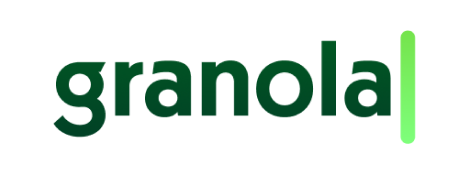HubSpot is heavily invested in its workplace culture. So much so that the company, based in Cambridge, Massachusetts, sets out its values in a 128-slide presentation, which has been viewed more than 4 million times on LinkedIn’s SlideShare.
HubSpot’s Chief People Officer, Katie Burke, has set the culture bar high. “We want people to be over the moon,” she says, “doing cartwheels and backflips, happy every day coming to work. That’s the standard I hold our team to.”
So far, the investment has paid off. The inbound marketing and sales software company regularly tops lists of best places to work and attracts new talent in droves. It has scaled from 50 employees in 2008 to 2,500 HubSpotters today. It’s opened international offices in Portsmouth, Dublin, Berlin, Tokyo, Sydney, Singapore and Bogotá and plans to expand to Paris this year as part of a global recruitment drive.
Now more than ever, it’s critical for HubSpot to get its culture right – to foster authentic and meaningful connections, regardless of location, role or length of service. Katie needed an intuitive, adaptable tool that encourages community and collaboration across the globe. That’s where Slack comes in.
“With Slack, employees have instant access to 2,500 people globally, all conspiring to help them. That feels right away like you’re part of a bigger picture, that you belong.”
Building authentic connections and inclusivity with Slack
If the HubSpot culture and employee experience are a product, Katie is the product manager.
“We want to give people both a compelling reason to join HubSpot and a compelling reason to stick around,” she says. That involves investing in local teams and leadership and encouraging everyone to shape, versus conform, to the culture. This adaptive strategy is what makes Katie’s job so important – and challenging. “I feel incredibly lucky that I get to help HubSpotters globally feel like they belong and find innovative ways to make sure our company is scaling with them,” she says.
Slack’s role in supporting HubSpot culture starts on a new employee’s first day, when they might be feeling overwhelmed. “We use Slack to actually nudge people throughout their training and remind them of all the reasons they joined,” says Katie. Team leaders customise a bot to deliver exactly what they want new starters to know and when. Once they’ve settled in, a Slack notification can:
- Remind them of important first-day materials
- Connect them to employee resource groups
- Inform them of upcoming HubSpot activities
Once you’re in, transparency – one of HubSpot’s core values – is immediately apparent. Got a question for co-founder Dharmesh Shah? No problem: send him a direct message via Slack. The absence of barriers between leadership and front-line employees is intentional. As Katie says, “Slack is a technology that helps us fill that gap, virtually and globally, to make sure we’re removing any lack of transparency throughout the organisation and delivering on our promise.”

HubSpot also bridges geography through global groups that connect employees via common experiences. HubSpot has four core employee resource groups open to anyone, from fledgling HubSpotters to executives. HubSpot’s Vice President of Business Operations, Ryan Ward, says those channels are “one of the big ways people can engage and feel connected, and like they can bring their whole self to work.”
One of these groups, Women@HubSpot, is managed by Ashley Jeffress, who says, “Slack has been one of the best ways to actually generate this community. It really provides a space for everyone to share their ideas and speak their mind.” This year, Ashley facilitated a week of events to celebrate International Women’s Day, using Slack to rally together programme leaders and champion region-specific channels. “We want to ensure that everybody feels like they have the power to grow this programme, regardless of where they are. It’s wonderful to see the reach that it has without me having to physically be there.”
Every day, the collaborative power of Slack helps HubSpot deliver its promise to provide employees with an inclusive and transparent workplace, even – and especially – as it scales. Diversity programming, a global buddy system and open-channel policies flatten the hierarchy and promote organisational transparency, allowing the company to retain and attract the kind of diverse talent that moves its cultural values forward.
“Our programmes are open to any and all HubSpotters, regardless of how they identify. So it doesn’t matter who you are, but if you want to get involved and you want to be a part of a programme, we want you there.”
Sales teams leverage Slack to grow their customer base
Slack is more than a facilitator of workplace culture. HubSpot uses it across all lines of business, from system operations to sales. For the latter, Slack has proved particularly useful, according to Jeetu Mahtani, HubSpot’s Senior Vice President of International Operations.
Jeetu is responsible for driving growth outside the US, much of which depends on expertly responding to incoming enquiries. “We’re the company that basically coined the term ‘inbound,’” he says, “so globally, all our reps get inbound leads.” Prior to Slack, leads used to land in his team’s inboxes and sit in the system until someone could address them. However, if prospects don’t receive a response within a few hours, they’ll probably go elsewhere, Jeetu points out.
Thanks to a new Slack integration, he says, “any time we get a lead, we actually send it as a notification to our reps in Slack. They’re getting real-time notifications, whether they’re at their desks or on their phone, and can respond proactively, as opposed to waiting for something to show up in their inbox.”
After noticing that sales reps were tediously copying and pasting data between HubSpot and Slack, product manager Jingo Mante and her team built a custom Slack integration that allows users to create new HubSpot tasks, receive notifications and search contacts straight from Slack. Without the constant context switching, the sales team can spend their time on more valuable activities, such as knowledge sharing. “Any time we win a new customer, we send a message to a Slack channel where we share details about who the customer is, why they bought and how we helped solve their pain points,” Jeetu says. “Those learnings have been really important for all of our sales reps globally.”
“Any time we get a lead, we actually send it as a notification to our reps in Slack. They’re getting real-time notifications, whether they’re at their desks or on their phone, and can respond proactively, as opposed to waiting for something to show up in their inbox.”
Sifting through the noise to solve customer issues faster
Part of HubSpot’s success as a business lies in its support teams. Software engineers and product managers within the organisation interact with the customer support group via Jira. But Jira notifications tend to flood inboxes and can quickly become a burden.
HubSpot has untangled things by utilising Slack integrations and channels. When someone is mentioned in a Jira ticket, it will appear in that person’s Slack channel. Ryan explains, “The point there was to try and help our project managers and engineers sift through some of the noise to make sure they’re aware of and responding to the most urgent customer issues.”
When it comes to customer service, HubSpot’s System Operations Manager Andrew Meinert and his team use the native Twitter integration to monitor the @hubspot support handle, which posts into the Twitter support room. Then they use Slack to organise and prioritise. “A bot deletes the post, then reposts the same content with a claim button,” says Andrew. With clear visibility over the project and who’s covering it, everyone can move on to the next issue with peace of mind. “It helps with coordination and being more responsive to our customers,” he says.
As HubSpot grows, Slack has allowed its teams to tighten up administrative tasks and increase efficiencies. “Like any organisation, there are a lot of small, semi-annoying admin tasks that everybody has to do,” says Ryan, “and there’s a lot of demand for us to find clever ways to move more of those into Slack. It prevents people from having to go access a completely different application for one-off tasks.”

Removing those mundane tasks is one of many ways HubSpot creates a workplace where employees are excited to come to work. It’s that attention to detail, along with tools such as Slack, that enables the marketing leader to deliver its promise to provide an inclusive, transparent and diverse workplace, where all 2,500 HubSpotters can do their best work.














